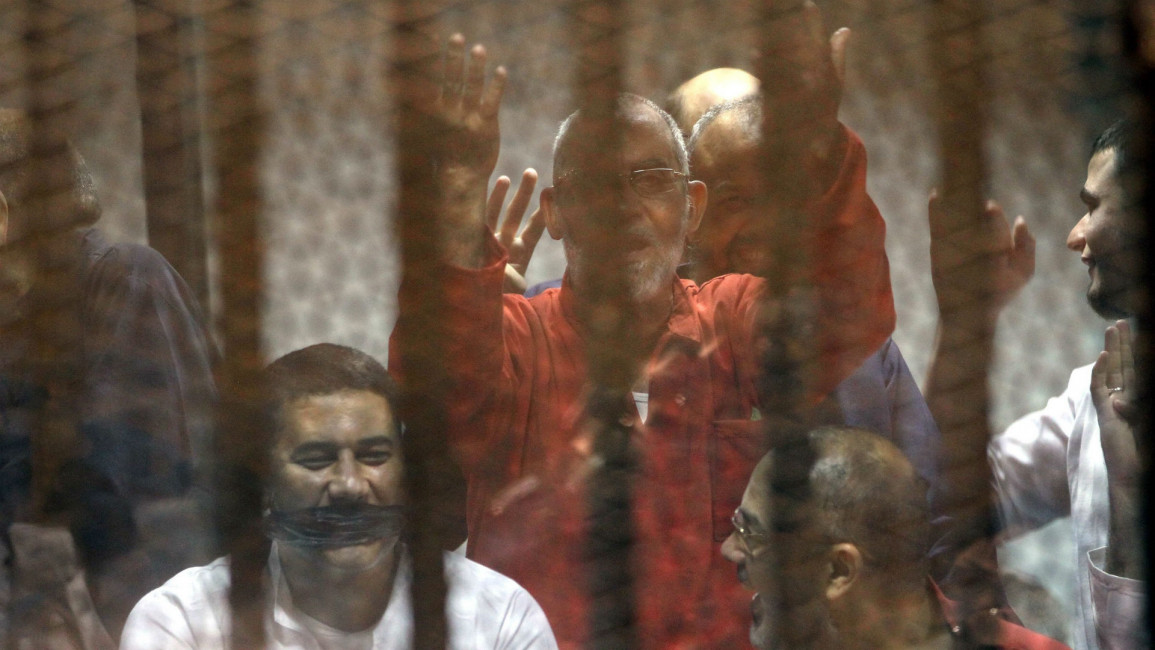Egypt attacks UK for extending asylum to Muslim Brotherhood
Egyptian parliamentarians have slammed new guidance issued by the UK's Home Office on Muslim Brotherhood members seeking refuge in Britain, claiming the move underlines Britain's "long-standing tolerance of Islamic extremism".
Members of the legislative chamber, which is made up primarily of loyalists of anti-Brotherhood President Abdel Fattah al-Sisi, joined the Egyptian Ministry of Foreign Affairs in condemning the British decision to consider asylum applications from Muslim Brotherhood members or associates who face real threats of detention, torture and trial without due process.
'Contradicting'
Disgruntled MPs in Cairo highlighted an alleged contradiction between the UK's openness to asylum applications from Brotherhood members and the findings of a UK government review in December, which concluded that links to the Islamist political group should be considered a potential indicator of extremism.
"They said last December that links to the Muslim Brotherhood should be considered a possible indicator of extremism, and now after eight months they say members of the group, including supporters and journalists, can seek political asylum in the UK," MP Abdel Rehim Ali told reporters.
Ali went on to berate the UK for its "biggest mistake" of considering the "Muslim Brotherhood as a political group," as Britain does not consider the group a terrorist organisation, unlike Egypt and its Gulf allies Saudi Arabia and the UAE.
A British government report from early 2015 concluded that the group had no links to terror, however recommended that the Brotherhood's activities be monitored.
This was much to the disappointment of Cairo, which has driven the Brotherhood underground, imprisoned tens of thousands of its supporters and killed pro-Brotherhood protesters under the leadership of President Abdel Fattah al-Sisi, who had himself seized power from Egypt's first democratically elected president - a Brotherhood affiliate- in 2013.
Pandering to extremism?
Ali also accused the UK of allowing London to become a hotbed for European Islamist extremism, citing the country's tolerant attitude towards the group in since the 1960s.
"London, or Londonistan, has become Europe's hotbed of Islamist extremists and a major base for spreading the jihadist ideology in the West and recruiting possible jihadists," Ali alleged. "We see now that the UK Home Office's new decision by no means reflects intensifying scrutiny of the Muslim Brotherhood's activities, and by contrast it allows this radical group to gain more ground in Britain."
Another MP, Mostafa Bakri, issued an "urgent statement" on the matter and argued that the UK Home Office's decision constitued an "interference in Egypt's internal affairs".
Bakri added that Egypt's legislature must swiftly challenge this "pro-Brotherhood" campaign in the UK.
Faltering promises
According to MP Osama Sharshar, the UK's publishing of new asylum guidance came just a week after British MPs visited Egypt and promised to go back and advise Prime Minister Theresa May to further scrutinise Brotherhood activity.
"According to an official statement," Sharshar said, "parliament speaker Ali Abdel-Al urged the British parliamentary delegation last week to conduct more research on the radical nature of the Muslim Brotherhood or to use England as a base for inciting violence against Egypt, but what we see now is that the UK is moving in the opposite direction, giving this radical group a golden opportunity to gain greater a foothold in the West."
Sharshar also questioned why the UK had decided to issue the new guidance just a week after an "Egyptian-British parliamentary friendship association" was established.
While Egypt's MPs call for greater scrutiny of the Brotherhood, many international observers may argue that a greater level of inspection need to be applied to Egypt's government itself.
According to Amnesty International, the number of forced disappearences in Egypt has spiked, with an average of three or four people being abducted by authorities each day. This tactic has become central to the state's repression of peaceful dissent, which is carried out in the name of counter-terrorism.
"Enforced disappearance has become a key instrument of state policy in Egypt," says Philip Luther, Director of the Middle East and North Africa Programme at Amnesty International. "Anyone who dares to speak out is at risk, with counter-terrorism being used as an excuse to abduct, interrogate and torture people who challenge the authorities".



